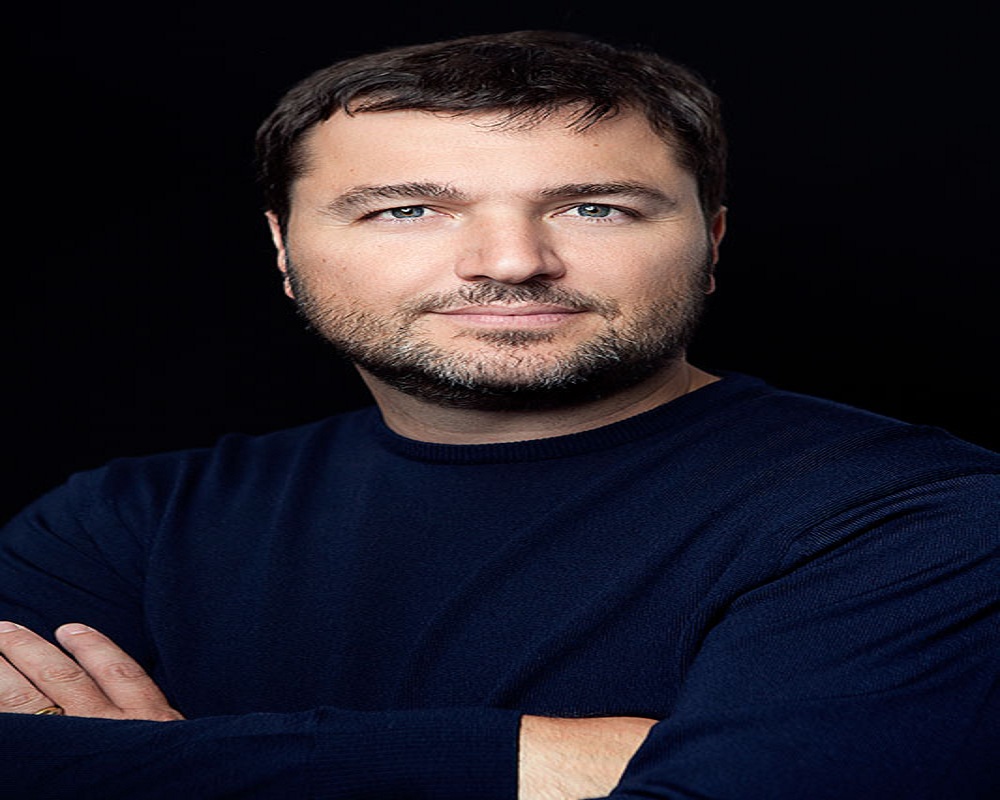Broadcasting
Bring On the CTO: Why Having a Chief Transformation Officer Makes Sense in a Post-COVID World

By Ricardo Vargas Executive Director, Brightline Initiative, PMI
The case for having a Chief Transformation Officer (CTO) has been building for years. Now, as companies undertake the difficult task of rebuilding in the wake of COVID-19, the CTO role is more important than ever.

Ricardo Vargas Executive Director _ Brightline Initiative, PMI
“Life will never be the same after COVID-19.”
You hear that a lot these days. But for many organizations, life will indeed be different in a post-COVID world. Whether they’re restructuring their supply chains, reframing their go-to-market strategies or reconsidering their office space needs, organizations rebuilding in the wake of COVID-19 will need to undergo significant transformation.
To aid in these efforts, it becomes relevant to think about formalizing the role of the Chief Transformation Officer.
The role of Chief Transformation Officer, or CTO, is tailor made for times like these. A CTO can take top management’s transformation vision and make sure it’s properly disseminated throughout the organization.
He or she can translate that vision into concrete goals. Even more important, the CTO can devise and deliver the master plan for achieving these goals—overseeing the multitude of projects that will be needed to turn the organization’s transformation strategies into reality in the post-COVID world.
A Constant State of Transformation
Even before the onset of COVID-19, however, the argument for formalizing the CTO role had been building. That’s because many organizations are already dealing with near constant transformations due to disruptive societal and technology changes. These include growing urbanization, climate change, massive demographic shifts and the revolution caused by advanced technologies like artificial intelligence, robotics and 5G.
There’s also the reality that transformations are costly, time-consuming and difficult. They tax the capabilities of even the most agile organizations. In fact, Forbes estimates that 70 percent of large-scale transformations fail to achieve their goals, resulting in a loss of approximately $900 billion in 2018 alone.
Transformations fail for a variety of reasons. Executives we spoke to as part of a 2020 Brightline study, titled Mastering Strategy Implementation in Transformative Times , cited such challenges as limited resources, insufficient technology, skill gaps among internal talent and a lack of processes for guiding strategy.
This same research—among 1,000+ C-level executives from around the world—also provides supporting evidence for the CTO role. Indeed, one of the key variables contributing to the success of a strategic transformation is strong leadership. Brightline’s years of experience in researching strategic implementation suggests that naming a CTO may be the best way of providing that leadership.
Using Standardized Processes
The CTO can serve as a catalyst for formalizing the processes used in transformation initiatives. That’s important because one of the other key variables behind a successful transformation is implementing and adhering to such standardized processes.
The CTO can bring the discipline needed to do so—helping organizations be more adaptable and allowing them to take full advantage of the technology and frameworks they already have.
Finally, having a CTO leads to greater accountability. Investing one person with the responsibility for overseeing a transformation eliminates any potential leadership gaps. It ensures that there will always be one person—the CTO—whose sole priority is the success of the transformation initiative.
Sometimes a black swan event can disrupt a trend that has been gaining momentum. In the case of the CTO role, however, the COVID-19 pandemic should accelerate that momentum. In the post-COVID world, we need to bring on more CTOs to manage the arduous task of re-building our organizations, our economies and our society.
Broadcasting
Eedris Abdulkareem Teases New Protest Anthem following NBC Ban

Eedris Abdulkareem, veteran hip hop artiste, is showing no signs of backing down as he hints at releasing another protest song, shortly after his last track was banned by the National Broadcasting Commission (NBC).

Eedris Abdulkareem, veteran hip hop artiste
He recently again stirred the political waters as he hinted at the release of a new protest song, only weeks after his controversial track Tell Your Papa was banned by the National Broadcasting Commission.
The outspoken musician took to social media on Wednesday, April 16, 2025, to share an animated cover design with the words “3 Arms of Government,” suggesting the theme of his upcoming release.
Though the title remains undisclosed, the post was captioned simply with “Stay tuned,” fueling speculation that another hard-hitting social commentary is on the way.
Abdulkareem, known for his unapologetic political views, recently described the NBC’s decision to ban Tell Your Papa as hypocritical. Undeterred by censorship, he appears set to continue using music as a platform to criticize injustice and demand accountability.
The rapper also recently reaffirmed the relevance of his classic hit Jaga Jaga, stating that it would remain the country’s “second unofficial national anthem” until key issues like security, electricity, and governance are addressed.
With another protest song on the horizon, fans and critics alike are bracing for what may be Eedris Abdulkareem’s most direct political message yet.
Broadcasting
MultiChoice Brings Easter Home with Dedicated Pop-Up Channel

In celebration of the Easter season, MultiChoice has announced the launch of a dedicated Easter Pop-Up Channel, offering DStv and GOtv subscribers across Nigeria the chance to experience live broadcasts of key Easter events and services from the Catholic Archdiocese of Lagos.

The special channel, which runs from Thursday, April 17 to Monday, April 21, will be available on DStv channel 196 and GOtv channel 28, bringing the significance and beauty of Easter directly into viewers’ homes.
Throughout the Easter period, the channel will broadcast a rich lineup of live religious events. The programming begins on Thursday, April 17, with the Chrism Mass in the morning, followed by the Mass of the Last Supper in the evening.
On Good Friday, April 18, viewers can join in the Good Friday Tenebrae and the Seven Last Words service, followed by the Stations of the Cross from St. Gregory’s, and later the Passion Service.
The spiritual journey continues on Saturday, April 19, with the Easter Vigil Mass late in the evening, leading into the Easter Sunday Mass on April 20. The channel’s special programming concludes on Monday, April 21, with the Easter Monday Mass from Galilee.
This dedicated pop-up channel is designed for those who may be unable to attend church services in person, as well as for anyone seeking to deepen their spiritual observance during the Easter holidays. By broadcasting these significant events, MultiChoice reaffirms its commitment to providing content that resonates with the cultural and religious values of its viewers.
Subscribers are encouraged to tune in to DStv channel 196 and GOtv channel 28 throughout the Easter period to take part in these important religious celebrations from the comfort of their homes.
Broadcasting
Maximise Your Easter Getaway in Nigeria with Smart Travel Hacks

Easter is almost here, and with it comes the perfect opportunity to escape the everyday hustle and embark on a memorable adventure. Whether you’re craving some ‘chilling’ time, quality ‘family’ time, or a ‘pepper dem’ getaway, Nigeria offers endless possibilities for exploration. And the best part? Travelling locally has never been easier or more affordable.

Whether you’re a ‘newbie’ traveller or a seasoned pro, we’ve got you covered with essential hacks that will make your trip a breeze. Say goodbye to stress and hello to smooth sailing as you navigate your Easter getaway like a true travel expert.
Planning your trip is like packing your suitcase – essential, not optional
Just like you wouldn’t leave home without your power-bank (just in case!), don’t head off on a quick trip without a plan. A little prep can save you time, money, and stress — from booking flights and sorting transport, to packing light and right.
Nigeria has endless ways to travel. Flying with local airlines like Air Peace or Ibom Air is quick and budget-friendly, while renting a car gives you the freedom to explore scenic routes like the drive to Erin-Ijesha Waterfalls or the journey to Obudu Cattle Ranch. Not into driving? Buses like Peace Mass or God is Good are easy and affordable. And for a truly luxurious experience, you could even consider a chartered flight – if you’re balling!
Travel like a pro: The art of smart packing
Packing smartly is a crucial travel hack that can save both time and money. Amelia Campher recently shared on TikTok how she organised her hair, beauty, makeup, and personal accessories into different vanity cases and toiletry bags from Temu. Each one perfectly stores her daily essentials, keeping everything neat and accessible. She excitedly told her followers, “This is your sign to buy these bags!” Her clever packing strategy ensures that she’s ready for any trip without unnecessary clutter or stress.
Take Jasmin’s experience, for example. After getting hit with extra carry-on fees on a previous flight, she decided to be smarter about her upcoming family trip. In her search for a solution, she found the perfect backpack on Temu for just under ₦40k. Ticking all the boxes, it avoided extra carry-on fees and allowed her to efficiently pack 16 items plus a makeup bag. When they arrived at the airport, Jasmin’s family breezed through check-in with no issues, their backpacks meeting size requirements perfectly. No extra charges, no stress; just a smooth start to their unforgettable five-day family trip.
Backpacks aren’t just ideal for air travel – they’re also perfect for road trips. Whether you’re cramming your car with family and their belongings or flying high, packing smart and light is essential. A compact, well-organised backpack can make your journey easier, no matter the mode of transport.
To avoid unexpected charges when flying within Nigeria this Easter, it’s crucial to familiarise yourself with airline baggage policies; while Economy Class typically permits 15kg to 20kg of checked luggage, and Premium Economy or Business Class allows up to 30kg, always verify specific weight limits with your chosen airline to prevent costly excess baggage fees, especially if you plan on packing more than the standard allowance.
No passport needed: Pack your bags for a Naija Detty Easter
Why travel halfway across the world when Nigeria has it all? This Easter, skip the long-haul and discover the treasures on your doorstep. From the buzzing streets of Lagos to the ancient city of Benin and the serene hills of Jos, unforgettable adventures are just a short trip away.
By travelling locally, you’re not only creating new memories — you’re also supporting local tourism and helping grow our economy. With so many destinations to explore, there’s something for every kind of traveller. So pack your bags, plan smartly, and make this Easter your best Naija Detty holiday yet.

 Telecom3 days ago
Telecom3 days agoMTN Nigeria Takes Broadband Services to the Next Level with FibreX Launch

 News3 days ago
News3 days agoSERAP Files Lawsuit Against NBC Over Ban on Eedris Abdulkareem’s Protest Song Tell Your Papa

 Telecom2 days ago
Telecom2 days agoDigital Transformation Remains Africa’s Gateway to Economic Advancement – Adumike

 Telecom2 days ago
Telecom2 days agoPAFON 2.0: Experts Discuss Pathways to Boost Financial Inclusion in Nigeria

 General News2 days ago
General News2 days agoEFCC Clarifies SCUML Certificate Misuse amid CBEX Ponzi Scheme Scandal

 E-Financial2 days ago
E-Financial2 days agoCBN, NGX Group Defend Economic Reforms at Nasdaq

 E-Financial3 days ago
E-Financial3 days agoFCMB Group Redefines Corporate Storytelling with The Power Of The Group TVC

 General News2 days ago
General News2 days agoFlashChange Partners Ruth Foundation to Empower Vulnerable Children in Alimosho with Skill Acquisition




























